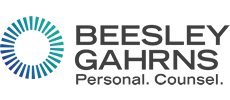Probate is the process whereby a deceased’s Will is certified by the court as valid. It’s proof that the executor has the necessary authority to administer the deceased’s estate. Probate should only be sought when necessary, for example, in order for the executor to sell the deceased’s real estate or to liquidate the deceased’ investment accounts. Estate Administration Tax is payable to the province at the time of the probate application.
The Will’s executor is responsible for the administration of the deceased’s estate: collecting the deceased’s assets, paying the deceased’s debts and taxes, distributing the deceased’s property to beneficiaries, managing any trusts, and keeping records. In order to do this effectively, good organization is required by the lawyer and the executor. Checklists are helpful tools in this regard.
In addition to legal assistance, executors may need the help of other professionals such as accountants and financial planners. Income tax elections should be made and income tax returns should be prepared with a view to minimizing potential tax. Trusts should be set up to maximize investment yield with flexibility and security.
What To Do When Somebody Dies – Q & A Provincial Government
What To Do When Somebody Dies – Canada Revenue Agency
What to Do Following a Death – Canada Revenue Agency
